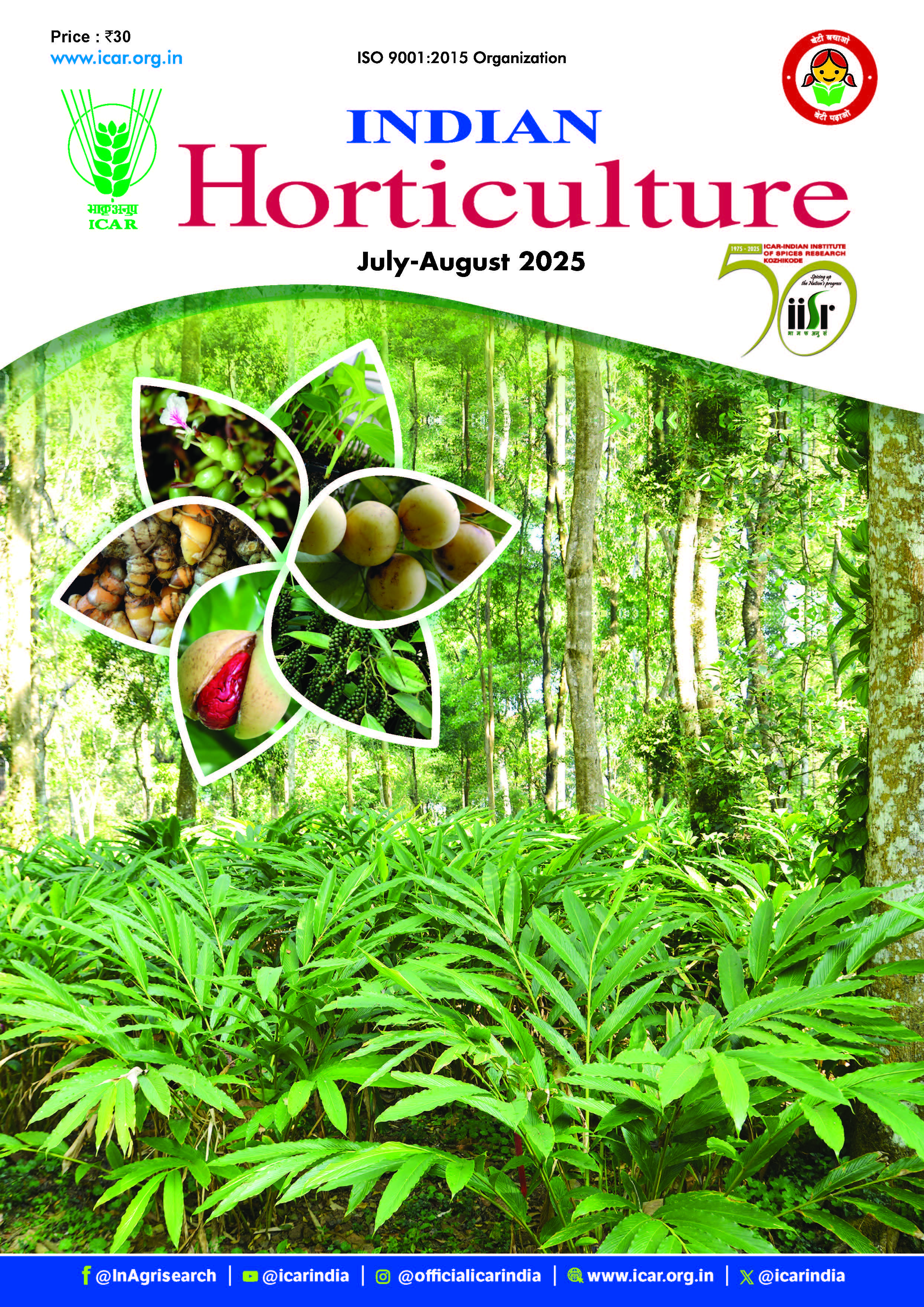Eco-friendly strategies for spice production through microbial inoculants
55 / 54
Abstract
The growing emphasis on residue-free spices and environmentally sustainable agriculture has driven the need for eco-friendly alternatives to conventional chemical inputs. This study underscores the crucial role of microbial inoculants in spice cultivation, functioning as biofertilizers, biopesticides, and biocontrol agents. Beneficial microbes such as Trichoderma spp., Bacillus licheniformis,
Pochonia chlamydosporia, and various PGPR strains have proven effective in suppressing diseases, enhancing nutrient availability, and promoting plant growth in crops like ginger, turmeric, cardamom, and black pepper. Integrating these microbial tools not only boosts crop productivity and resilience but also ensures compliance with stringent international standards, thereby supporting sustainable
and export-oriented spice production.
Downloads
Downloads
Submitted
Published
Issue
Section
License
Copyright (c) 2025 Indian Horticulture

This work is licensed under a Creative Commons Attribution-NonCommercial-ShareAlike 4.0 International License.
Complete copyright vests with the Indian Council of Agricultural Research, who will have the right to enter into an agreement with any organization in India or abroad engaged in reprography, photocopying, storage and dissemination of information contained in it, and neither author nor his/her legal heirs will have any claims on royalty.
